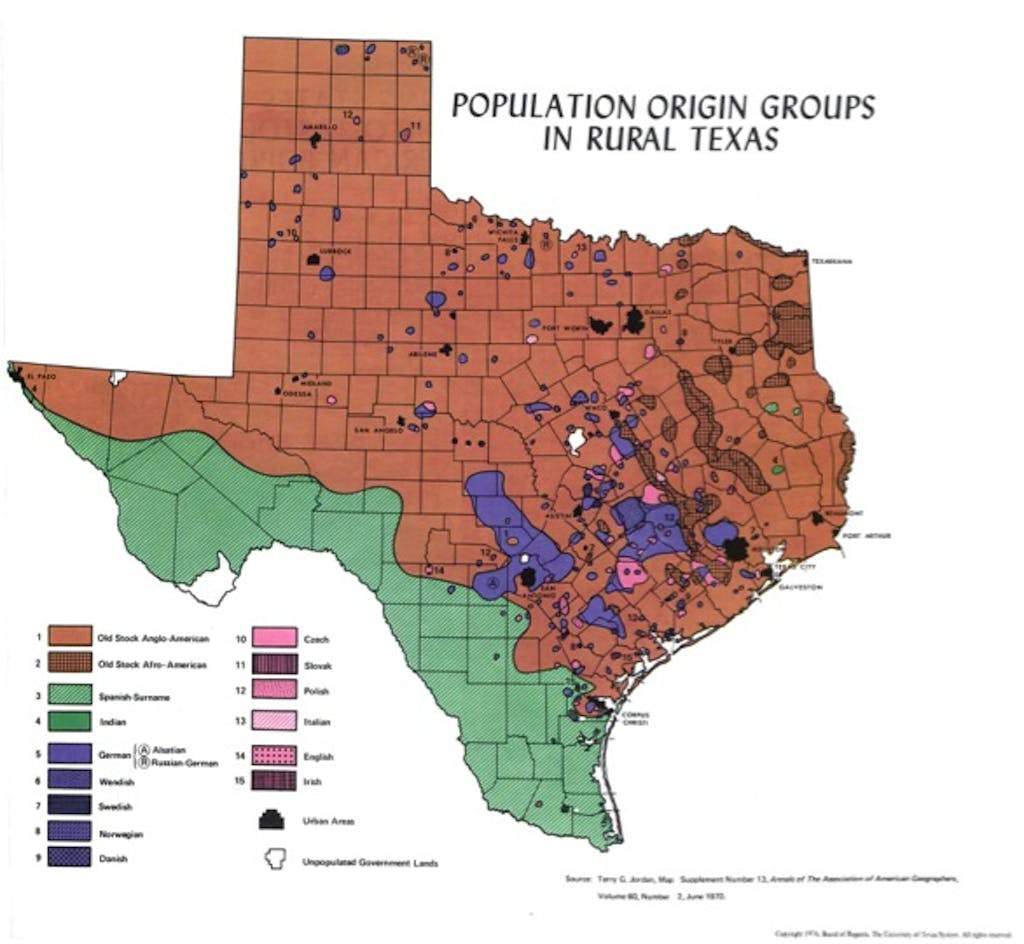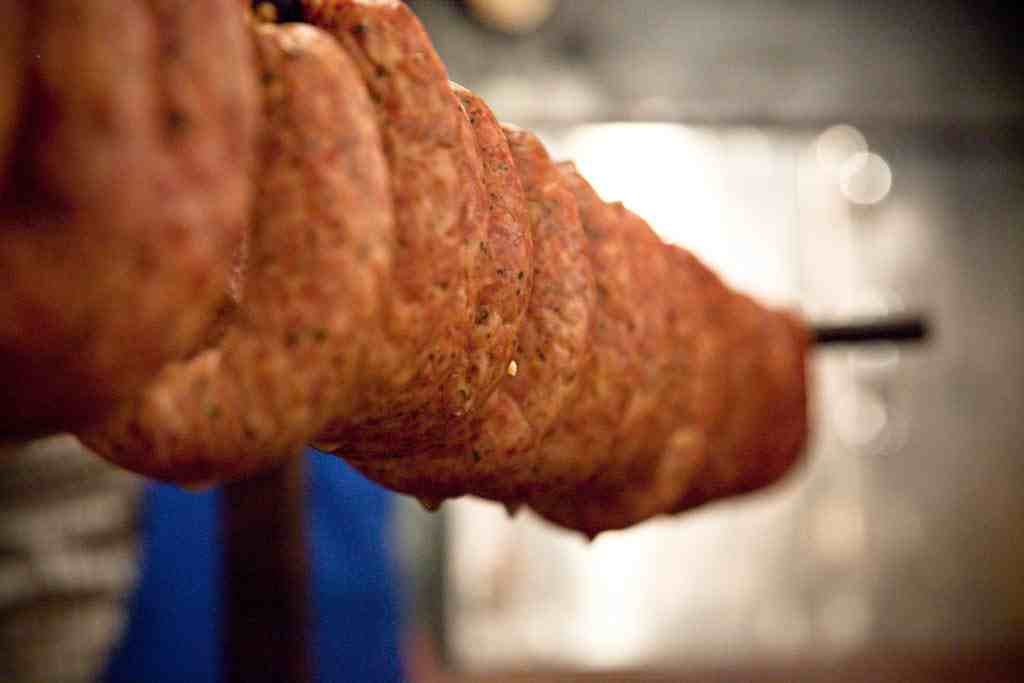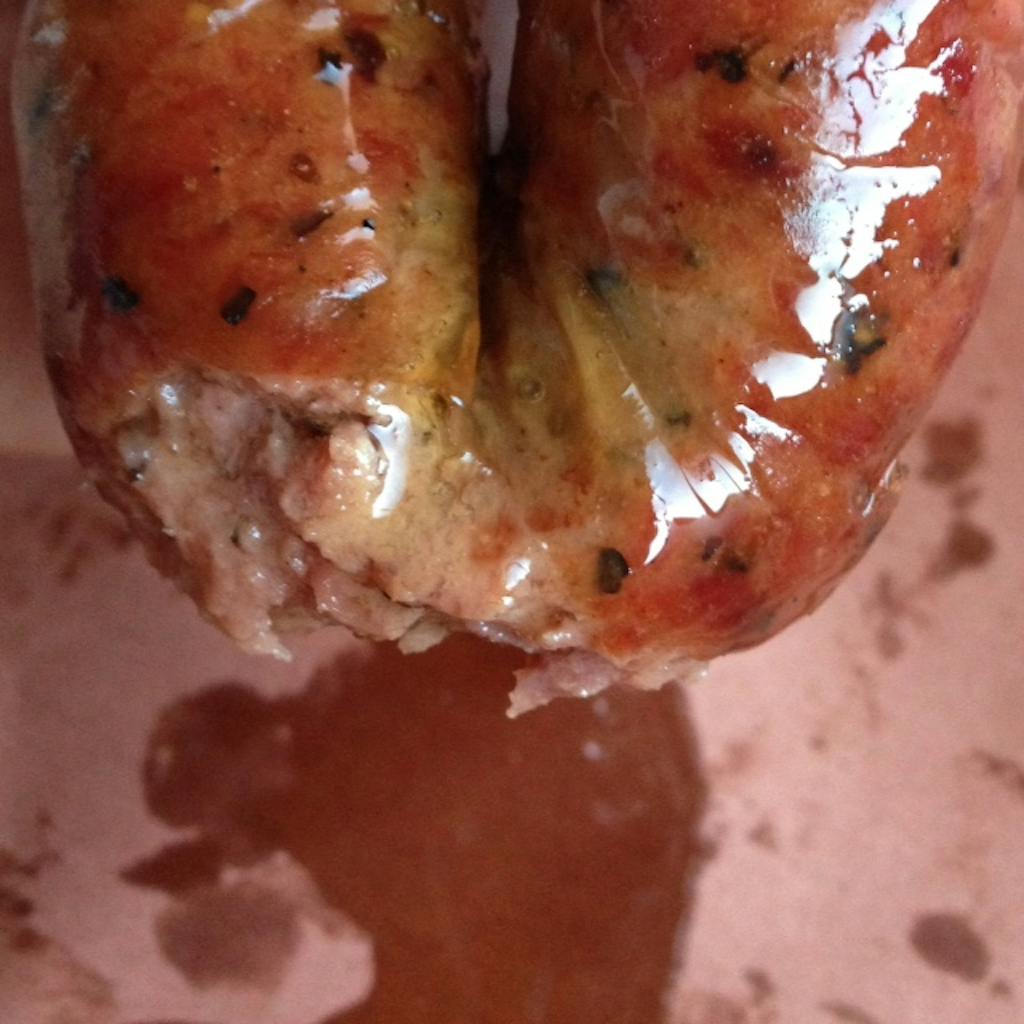Kelbosa Brand Beef Sauage Made in Texas
Terminal week I spent some time in West Texas eating barbecue. I've washed a few tours through the area already, so I know not to get excited when I see "German sausage" on a card, but I had a temporary memory lapse. The prospect of finding a coarsely footing and smoky beef sausage was quickly dashed when a large greasy section of grocery store-grade sausage, footing to the consistency of a hot dog, sat on the plate. I asked around about how this cheap sausage came to be known equally "High german." I couldn't notice an answer, so I headed to Primal Texas to find the origin of what we consider to be authentic Texas-German sausage.
The rise of the Texas meat market began in the nineteenth century, as I've chronicled on TMBBQ before, a response to the increasing urban population's demand for beef. Barbecue as we know it today sprung from these original meat markets. Which isn't to say these were places dedicated to serving smoked meats, like the restaurants familiar to us at present, but rather markets that extended the sales potential of their raw beefiness leftovers by cooking them as fix-to-eat meats. Whatsoever scraps or trimmings not cooked off every bit smoked cuts made their fashion into sausages.
Sausage even made an appearance in the earliest advertizement for barbecue, a description of a Bastrop butcher'southward stall, found in the October 25, 1878 edition of theBrenham Weekly Banner.

Past the 1880'south, smoked sausage could be purchased at Kemper Bros. in Fort Worth, Fritz Fisher's in Brenham, and the competing interests of John Kohler's and Alexander & Gill's in Bastrop.
Many of these meat markets were run past German immigrants or those with High german ancestry, people from families that migrated to Texas in the 1830s and 1840s (the Czechs wouldn't bring their sausage traditions to this country until the early 1900s). With these families came food traditions and culture, in this case, Old Earth sausage skills. But non everyone was happy with this influx of German links. A disparaging report from the Dallas Daily Herald came in 1875:
"A German sausage factory has been established in Austin. It may not be amiss to remind our city government that this is a splendid opportunity to dispose of our surplus dog crop."

Then in 1882, William J. Moon, the man who would make High german sausage famous in Texas, started stuffing links in Elgin. When Moon began his meat commitment business, his motto was "Butcher Today, Deliver Today." Bryan Bracewell, the current owner of Southside Marketplace, recently described Moon's early operation to me. "He was a small town butcher that slaughtered beef, pigs, and lamb on a piece of property about a mile outside of town," Bracewell said. "He'd haul the fresh meat into Elgin and sell it door-to-door from a horse drawn buggy. The charcoal-broil and sausage was just a derivative of having fresh meat and no refrigeration. If he wasn't a good salesman that day, he had to smoke information technology or odour it."

By 1886 Moon had opened a storefront in downtown Elgin, and the popularity of his spicy sausages grew, eventually earning the affectionate title of "hot guts." Today at Southside, they employ a recipe similar to Moon'south original. They've taken out some of the cayenne and blackness pepper to tone downward the rut, but it's even so an all-beef sausage in pork casings. Bracewell is mum on the other ingredients, but from the ingredient listing on their packaged sausage, I tin tell what it doesn't have in information technology: garlic.
Texas-Czech sausages all contain garlic in one grade or some other, but Texas-German sausages are simpler: beefiness (primarily) coarsely ground and seasoned with common salt, black pepper, and possibly some cayenne, stuffed into natural grunter casings and smoked. "It's like a farm sausage," Bracewell said. "Meat, table salt, and blackness pepper. In that location'due south nothing in there like herbs or garlic that isn't shelf stable."

Southside Market isn't the only Texas-German sausage business in Elgin. R.G. Meyer opened Meyer's Elgin Sausage in 1949, using a recipe his father Henry brought back from Frg. Meyer's opened a restaurant in 1998, 3 years later Elgin was named the Sausage Capital of Texas, a designation bestowed upon the Texas Legislature in 1995.

Lockhart, the Barbecue Uppercase of Texas, is likewise home to some mighty fine Texas-German sausages. Charles Kreuz Sr. opened Kreuz Market in 1900, and the original sausage recipe is all the same existence used today by the Schmidt family unit at both Kreuz Market place and Smitty's Market. It's an 85-to-15-percent beefiness-to-pork ratio with common salt, blackness pepper, and cayenne. Both joints utilise pork casings now, but Rick Schmidt told me they used to utilise beef casings. "My dad and the Kreuzes always used beef guts to make the sausage," but the supply for beef casings stale upwardly soon afterwards he took over, and then they made the switch to pork casings.

They as well add some balderdash flour equally a binder. Schmidt said he tried making it without the bull flour once. "When I cut into information technology was similar hamburger meat that crumbled and all that juice just ran everywhere." Kent Blackness of Black's BBQ in Lockhart agrees. His eating house has been serving Texas-German language sausage since 1932, and it's all almost the beef. Blackness said that ground pork has enough of natural binding capability, but beef needs some help, and that'southward where the balderdash flour comes in.

Don't assume that cut out pork means these beef sausages aren't juicy. At that place'due south still enough of fat in them, and it'll run downwardly to your elbows if you aren't careful. One of my favorites is in Luling at City Market where Joe Capello has been smoking them since 1962. "At present nosotros've got the pork ribs, so the trimmings from the ribs go into the sausage now, which makes it about 95 percent beefiness and five percent pork," Capello said. "We tell them it's beef sausage, only it yet has a trivial pork in information technology." Buy a link or two and swipe them through their mustard barbecue sauce to experience one of the finer bites of Texas charcoal-broil.

Afterward asking around, nobody could tell me if in that location was a particular High german sausage recipe that the Texas version was imitating, but Rick Schmidt recalled how he was convinced of the provenance of Kreuz Market's recipe.
"I couldn't answer that until about xx years ago….A charter bus came through at the old place. Information technology was a large group of German citizens…A lady came and asked me 'are you the owner?' I said 'Aye mam.' She said 'I want to tell yous that your sausage is the only sausage that I've tasted hither that reminds me of my hometown.'" Schmidt asked for further caption. "She said 'each little town has a wurstmeister, a sausage maker, and then each boondocks has its own flavor. Your sausage tastes similar my hometown."
Schmidt said he was too stunned to enquire what her hometown was, just that's how he knows his sausage is a German sausage, and that'due south practiced enough for me.
*****
Other charcoal-broil joints across Texas where you can find Texas-German sausages:
Bellville Meat Market place in Bellville
Black's BBQ in Lockhart
Chisholm Trail Barbecue in Lockhart
City Market in Luling
City Meat Market in Giddings
Cousin's BBQ in Fort Worth
Davila'south BBQ in Seguin
Gonzales Food Market place in Gonzales
Hays Co. BBQ in San Marcos
Kreuz Market in Lockhart
Lockhart Smokehouse in Dallas and Plano (From Kreuz Market in Lockhart)
Louie Mueller Barbecue in Taylor
Luling Bar-B-Que in Luling
Meyer's Elgin Smokehouse in Elgin
Prause Meat Market in LaGrange
Smitty's Market in Lockhart
Schmidt Family Barbecue (From Kreuz Market in Lockhart)
Stiles Switch in Austin (From Thorndale Meat Market in Thorndale)
Southside Market place in Elgin
Zimmerhanzel's in Smithville
Source: https://www.texasmonthly.com/bbq/history-of-texas-german-sausage/
0 Response to "Kelbosa Brand Beef Sauage Made in Texas"
Post a Comment